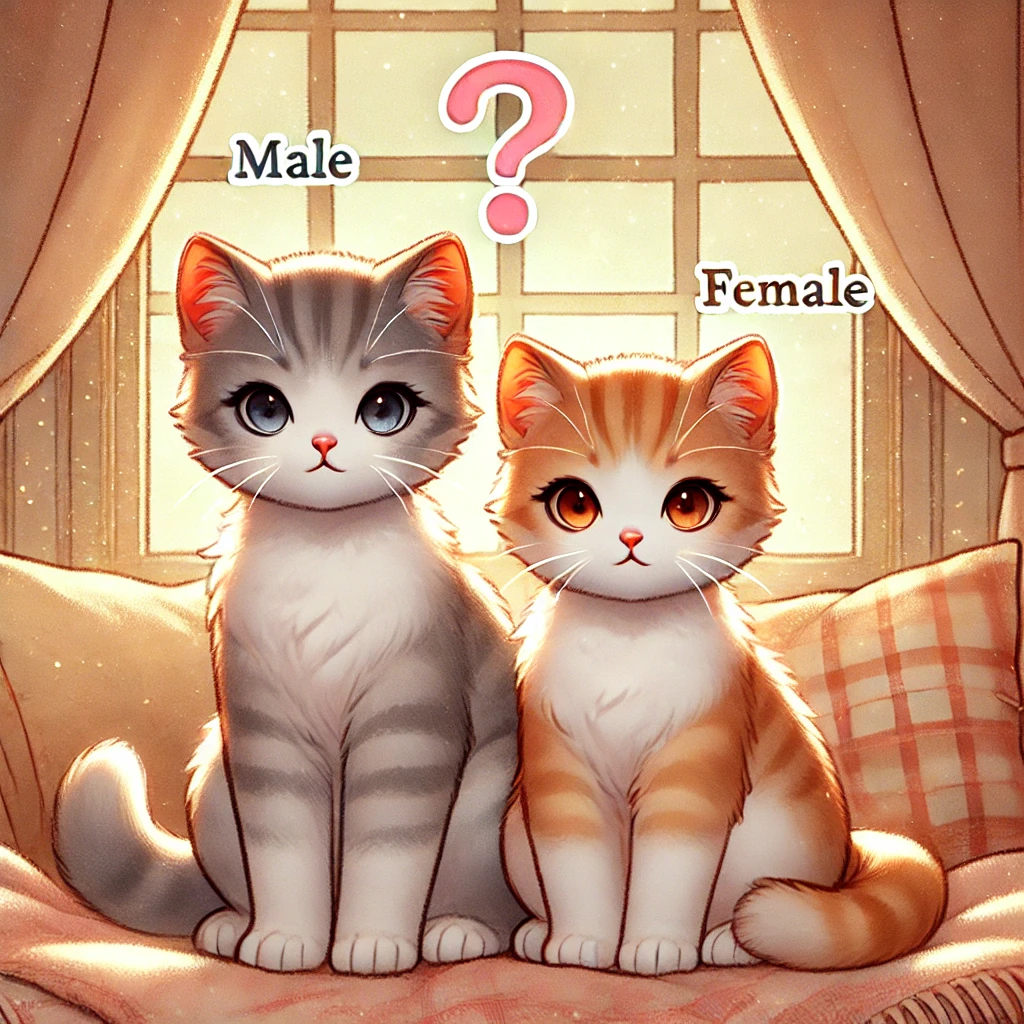Can Brother and Sister Cats Breed?
Yes, brother and sister cats can breed, and it happens more frequently than people realize, especially if the cats are unspayed or unneutered. Unlike humans, cats don’t recognize siblings as family, and their instincts drive them to mate once they reach sexual maturity. However, while breeding between sibling cats is biologically possible, it comes with serious health and ethical risks.
Table of Contents
Understanding the complexities of sibling cat mating can help cat owners prevent unwanted litters and safeguard their pets’ health.
Understanding Cat Breeding
What Is Inbreeding?
Inbreeding refers to the mating of closely related individuals, such as siblings or parent-offspring pairs. In cats, inbreeding happens when two genetically similar cats mate, leading to offspring with limited genetic diversity.
Why Cats Mate With Siblings
Cats lack the ability to recognize family ties. Siblings raised together will still follow their reproductive instincts when they reach sexual maturity (typically around 5-6 months of age). This behavior is purely driven by biology, not emotions or relationships.
Biological Possibility of Sibling Cats Mating
Brother and sister cats can mate because cats are not biologically wired to avoid inbreeding. In the wild, this could sometimes lead to limited gene pools, forcing siblings or related cats to reproduce. In domestic settings, sibling cats raised together will mate if they are not spayed or neutered, as their mating drive overrides any familiarity they may have with one another.
Risks of Breeding Between Sibling Cats
Genetic Disorders and Health Risks
One of the most significant concerns of sibling cats breeding is the risk of genetic disorders. Since siblings share a high percentage of their DNA, the chances of harmful genetic mutations being passed on increase dramatically.
Birth Defects in Kittens
Inbreeding amplifies the likelihood of congenital issues such as:
- Heart defects
- Cleft palate
- Kidney problems
- Neurological abnormalities

These defects may lead to a poor quality of life or require significant medical intervention.
Higher Mortality Rates
Inbred kittens have a higher risk of mortality at birth or during the first few weeks of life. Many kittens may fail to thrive, showing stunted growth and weakened immune systems.
Impact of Inbreeding on Cat Behavior
In addition to physical health problems, inbreeding can result in behavioral issues. Inbred cats may show:
- Increased aggression or irritability
- Nervousness or anxiety
- Reduced ability to learn or adapt to environments
These traits often stem from neurological problems caused by limited genetic diversity.
Understanding Genetics and Inbreeding
How Genetic Mutations Pass On
Each cat carries recessive genes, which are typically harmless when paired with a dominant gene. However, when two siblings mate, the risk of double-recessive genes increases. This amplifies the chance of genetic mutations being expressed.
Risk of Double-Recessive Genes
Double-recessive genes are more likely to cause genetic disorders, such as deafness, blindness, and skeletal malformations.
Why Cats Mate Without Discrimination
Lack of Mate Recognition in Cats
Cats do not recognize siblings or parents in the way humans do. Once a cat reaches sexual maturity, their instinct is to mate regardless of the relationship with the other cat.
The Role of Hormones in Feline Mating
Hormones drive a cat’s mating behavior. Female cats in heat emit pheromones that attract males, including their brothers. This biological urge overrides any familiarity or social bonds.
Signs of Inbreeding in Cats
Physical Signs of Genetic Defects
If sibling cats breed, their kittens may show physical abnormalities such as:
- Misshapen limbs
- Crooked tails
- Facial deformities
Behavioral Changes in Kittens
Inbred kittens may struggle with coordination, have delayed development, or display unusual behaviors such as hyperactivity or excessive timidity.
Preventing Sibling Cats From Breeding
Importance of Spaying and Neutering
Spaying and neutering are the most effective ways to prevent sibling cats from mating. It eliminates their reproductive urges and helps control the cat population.
Managing Multi-Cat Households
Keep male and female siblings separated until they are fixed. Even littermates will mate if given the chance.

Spaying and Neutering: Why It’s Essential
Health Benefits for Cats
- Reduces the risk of reproductive cancers
- Eliminates heat cycles and mating urges
- Prevents unwanted pregnancies
Population Control
Spaying and neutering prevent the overpopulation of cats, reducing the number of cats in shelters or on the streets.
Ethical Responsibility of Cat Owners
As cat owners, it is our responsibility to prevent inbreeding and safeguard our pets’ health. Taking proactive steps like spaying, neutering, and monitoring mating behavior ensures a healthier, happier life for cats.
What Happens If Sibling Cats Have Kittens?
If sibling cats breed, monitor the kittens for any health problems. Be prepared for potential medical challenges and consult a veterinarian for guidance. Early intervention can help manage genetic conditions.
Final Thoughts on Breeding Between Sibling Cats
While sibling cats can mate, the risks of inbreeding far outweigh any benefits. From genetic disorders to ethical concerns, preventing sibling cats from breeding is essential. Spaying, neutering, and responsible cat ownership play a crucial role in ensuring cats lead healthy lives.
FAQs
1. Is It Normal for Cats to Mate With Siblings?
Yes, cats will mate with siblings because they lack the ability to recognize family relationships.
2. How Can I Stop My Cats From Mating?
Spaying and neutering are the most effective ways to stop cats from mating.
3. What Are the Signs of Inbreeding in Kittens?
Physical deformities, behavioral problems, and poor health are common signs of inbreeding.
4. How Early Should I Spay or Neuter My Cats?
Cats can be spayed or neutered as early as 8 weeks old, but consult your veterinarian for the best timing.
5. Are There Long-Term Effects of Inbreeding in Cats?
Yes, inbreeding can result in genetic disorders, shorter lifespans, and poor overall health in cats.
